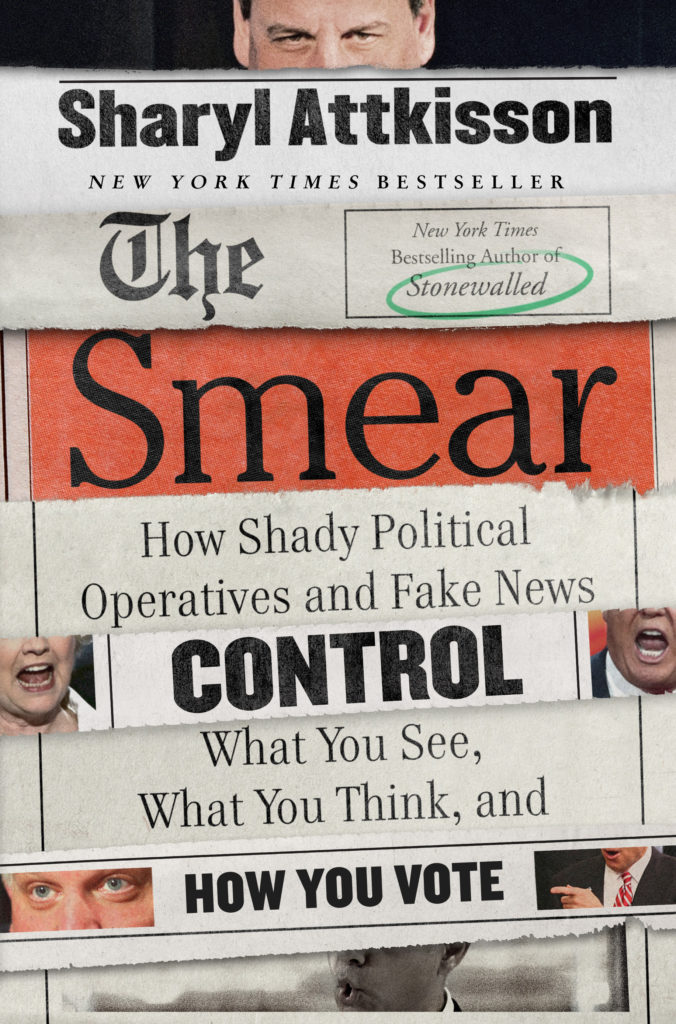The Computer Intrusions: Disappearing Act
The following is the third in a series of excerpts from my New York Times bestseller “Stonewalled,” which recounts the government intrusions of my computers. More excerpts to follow.
| DISAPPEARING ACT
In late December 2012, I take up my friend’s offer to have my computer examined by an inside professional. Arrangements are made for a meeting.
In the meantime, Jeff wants to check out the exterior of my home. To examine the outside connections for the Verizon FiOS line and see if anything looks out of order.
“If you’re being tapped, it’s probably not originating at your house, but I’d like to take a look anyway,” he says.
Read excerpt #1 here: The Computer Intrusions: Up at Night
Read excerpt #2 here: Big Brother: First Warnings
“Sure, why not.” I don’t think he’ll find anything but there’s no harm in having him look. Maybe I should be more concerned. What if the government is watching me? What if they’re trying to find out who my sources are and what I may be about to report next?
“I did find some irregularities,” Jeff tells me on the phone after in- specting the outside of my home. “It could be nothing, but I’d rather discuss it in person.” We meet at my house and he walks me to a spot in the backyard just outside my garage. His primary concern is a stray cable dangling from the FiOS box attached to the brick wall on the outside of my house. It doesn’t belong.
“What is it?” I ask.
He picks up the loose end and untwists a cap exposing a tiny glass dome underneath. “It’s an extra fiber optics line,” he tells me. “In ad- dition to your regular line.”
“What’s it for?”
“I’m not an expert, but someone could remove the cap and attach a receiver and download data. Or they could put a tiny transmitter here,” he points to a place under the cap, “and send information to a receiver off site once a day, once a week, or whenever. You need to have this checked out.”
I photograph the cable and decide to begin by asking Verizon reps if they installed the extra line for some unknown reason. For the mo- ment, I’m operating under the assumption that the company will be able to explain everything. So on New Year’s Eve 2012, I place the call to Verizon and describe the mystery cable.
A diverse group of Constitutional free press and privacy advocates is supporting Attkisson v. Dept. of Justice/FBI to fight the government computer intrusions. Click here to support.
“Can you tell me if this is something you installed?” I ask. I tell the representative that Verizon has made repeated troubleshooting visits to my house in the past year. Maybe a spare line got left behind.
The Verizon rep puts me on hold for long periods as she contacts one department, then another in hopes of answering my question. Fi- nally, she tells me authoritatively: “That’s nothing that we would have installed or left there. You need to contact law enforcement.”
“Can I email you a photograph and have your technicians look to be sure?” I ask.
I’m not convinced it’s time to call the cops. What would they do, anyway, other than tell me that they don’t know why the cable is there and recommend that I call Verizon? My husband, a former law enforcement official, agrees. Besides, in the unlikely event that there’s a legal tap on my phone, neither Verizon nor the police would tell me.
But the Verizon rep won’t let me send the photo for technicians to review. She insists they have no process that allows a customer to email a picture. For the moment, I give up. We’ll wait until the holi- days are over and get some advice on what we should do.
Support the Attkisson v. DOJ/FBI Fourth Amendment Litigation Fund to fight the government computer intrusions
An hour later, my phone rings. A woman identifying herself as a Verizon supervisor says she’s following up on my call and wants to dispatch a technician to my house the next day to take a look. That’s New Year’s Day. I find that unnecessary and somewhat surprising. It’s not always easy to get a service call scheduled quickly, let alone on a holiday when I didn’t even ask for one.
“You don’t have to send anybody out on New Year’s Day,” I tell the supervisor. “Why don’t you let me just email this photograph and you might be able to save yourself the trouble. Maybe it’s just a piece of equipment your technicians installed or left here. Can’t someone look at the picture and see if they can tell?”
“No,” she insists. “We’ll just send a technician out tomorrow.”
I report this to Jeff, who also finds it curious that Verizon would rush out a technician, unsolicited, on New Year’s Day.
“Mind if I come by when he arrives?” he asks.
“That would be great.”
So I begin the first day of 2013 by answering a knock on the door.
The Verizon technician introduces himself and hands me a business card with his first name and phone number handwritten on it.
To be continued…
A diverse group of Constitutional free press and privacy advocates is supporting Attkisson v. Dept. of Justice/FBI to fight the government computer intrusions. Click here to support.
![]()
Original source: https://sharylattkisson.com/2018/11/17/the-computer-intrusions-disappearing-act/
See comments at original source: https://sharylattkisson.com/2018/11/17/the-computer-intrusions-disappearing-act/#comments








